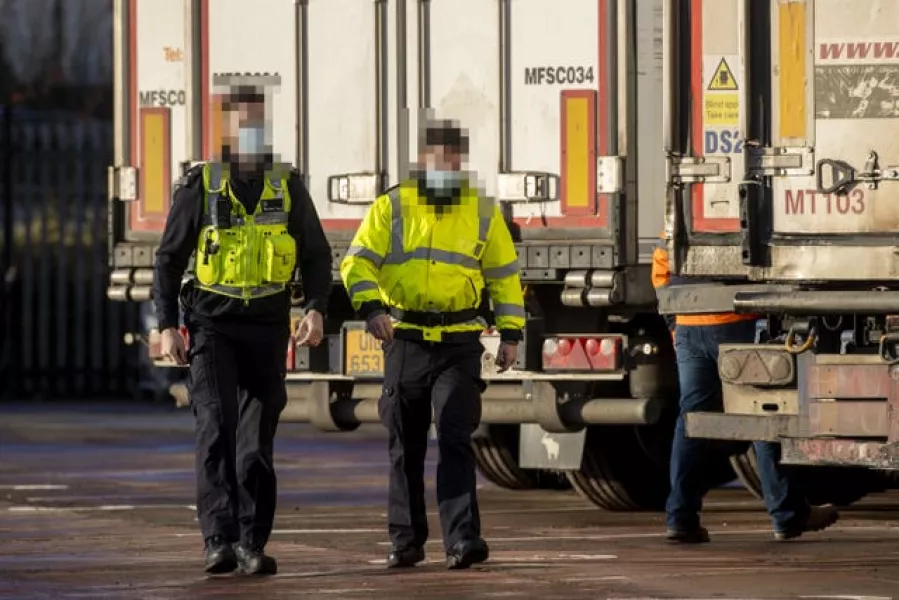Brexit paperwork on deliveries to Northern Ireland from Britain is creating an overwhelming amount of work, the haulage industry said.
The country is following the rules of the EU single market to avoid a hard Irish border and has shifted checks on food standards to Irish Sea ports.
Customs experts involved in supporting traders are working days behind schedule, Seamus Leheny from LogisticsUK said.
The Northern Ireland policy manager representing freight companies told Stormont’s agriculture committee: “They have been simply overwhelmed by the work.
“That is the case across the industry. People in Great Britain have not been aware of the volume of administration that this would involve.
“You cannot simply wish away friction and administration when you implement customs controls anywhere in the world.”

The end of the transition period late on New Year’s Eve brought into force the different regulatory and customs arrangements to the rest of the UK.
Customs declarations and additional regulatory checks are required on goods moving from Britain to Northern Ireland. Trade in the other direction remains largely unfettered.
Six lorries on the first ferry arriving in Belfast on January 1st were delayed because of incomplete paperwork.
A trade deal was reached between the UK and EU as well as details on how to implement the Northern Ireland Protocol.
There have been initial problems adjusting to the new regime.
Pressure
Mr Leheny said his members had initially supported the backstop deal which was rejected by Parliament while Theresa May was the British prime minister.
That would have avoided the need for customs declarations.
He added: “This is a result of the UK Government rejecting that and it was entirely its decision.”
He said any alternative to the Protocol needed to be proven to work.
“We have been marched up to the top of the hill on this.
“To say let’s invoke this but do not have a plan on what to do next I think is just as dangerous for us.”
He said a lot of businesses had taken a step back to consider how to manage movements from Britain to Northern Ireland.
He said the pressure was on perishable chilled meats and fruit and vegetables, whose suppliers could not afford long delays.
Mr Leheny told Stormont’s agriculture committee: “They need someone at the end of the phone to help them.”







